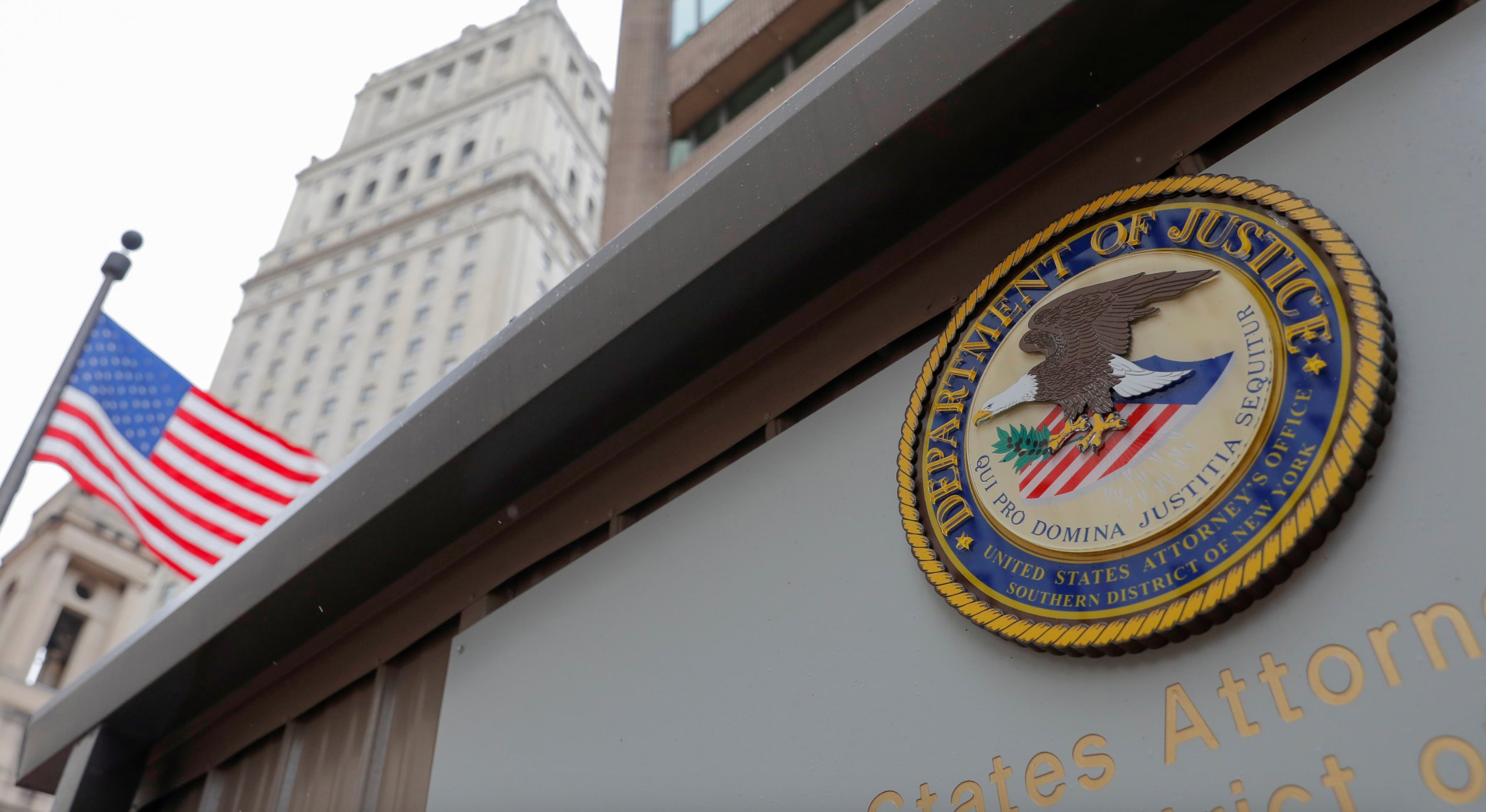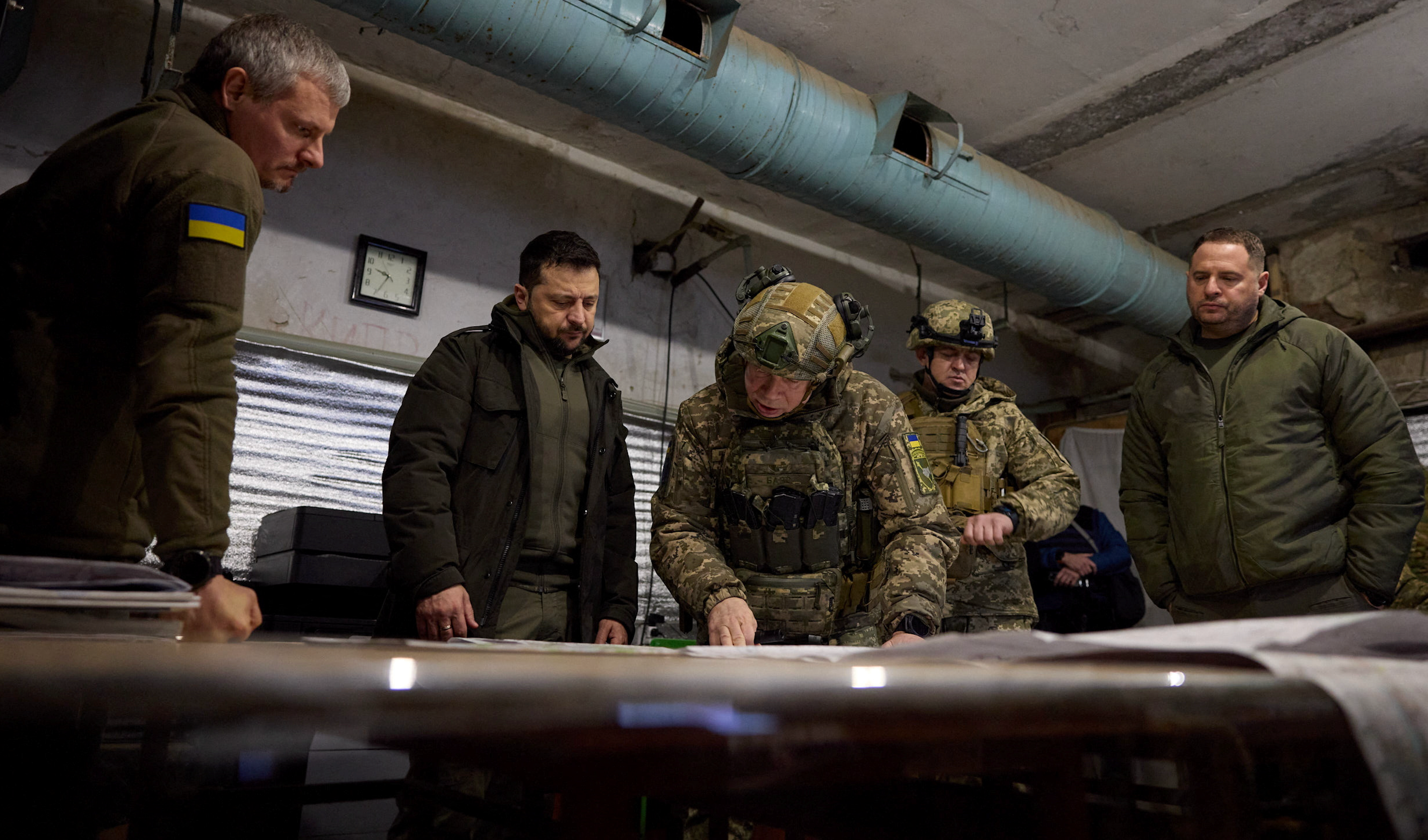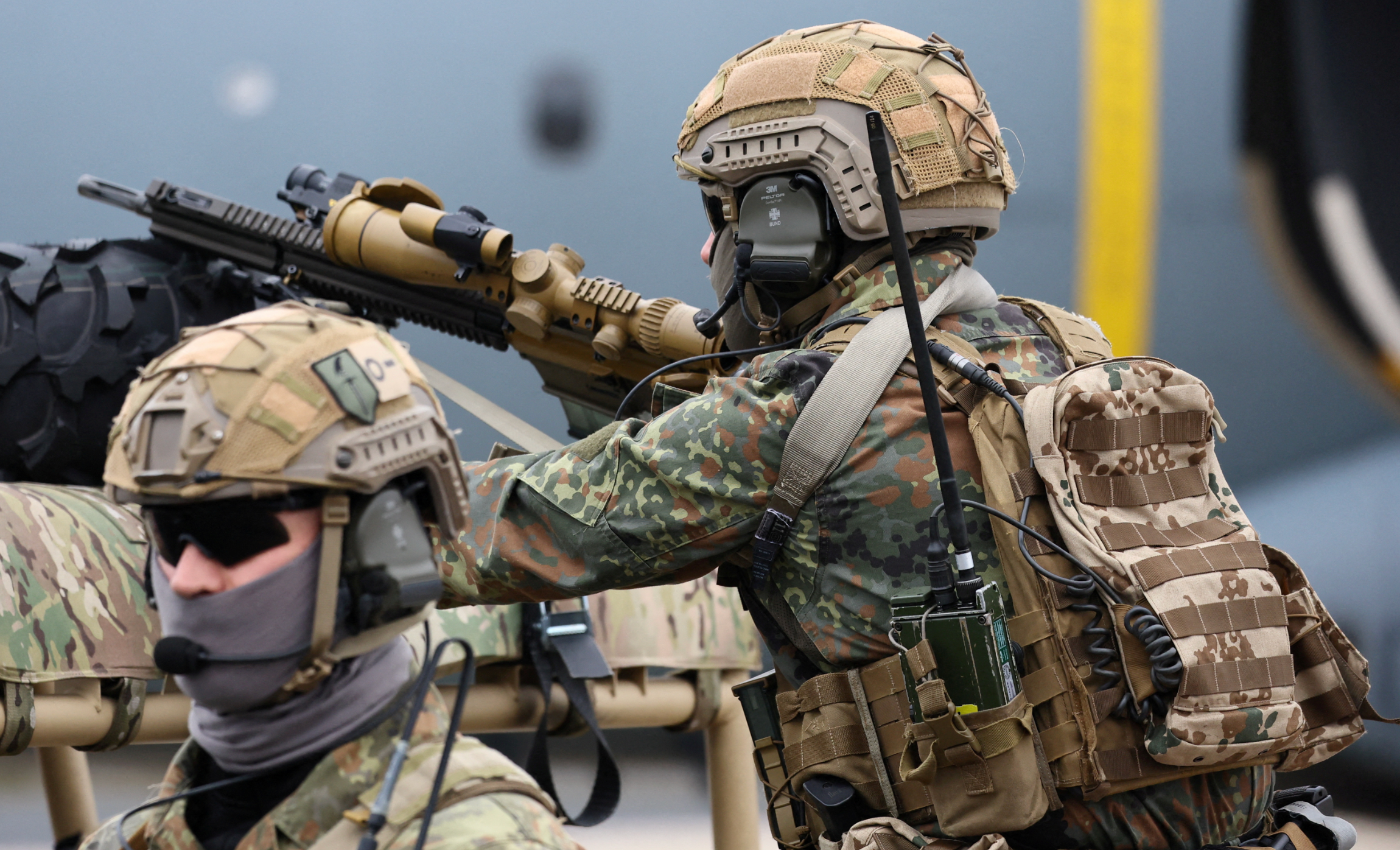
Russian-Canadian woman pleads guilty in US to sending Russia military components
PHOTO CAPTION: The seal of the United States Department of Justice is seen on the building exterior of the United States Attorney's Office of the Southern District of New York in Manhattan, New York City, U.S., August 17, 2020. REUTERS/Andrew Kelly
By Kanishka Singh
WASHINGTON (Reuters) - A Canadian-Russian woman on Monday pleaded guilty in a U.S. court to money laundering conspiracy for her role in a multimillion-dollar scheme to send drone and missile components to Russia for military use against Ukraine, the U.S. Justice Department said.
WHY IT IS IMPORTANT
The case is one of many coordinated through the U.S. Department of Justice's Task Force KleptoCapture, which was created to enforce sanctions, export restrictions and other measures in response to Russia's invasion of Ukraine that began in February 2022.
CONTEXT
Kristina Puzyreva, was charged with smuggling, conspiracy to violate sanctions and wire fraud conspiracy in late October. She laundered money on behalf of several Brooklyn front companies to ship U.S.-origin electronics to sanctioned entities in Russia, according to prosecutors.
Puzyreva and her husband Nikolay Goltsev, both of whom are Canadian-Russia dual nationals, were arrested late last year along with Salimdzhon Nasriddinov, a Russian-Tajikistan dual citizen.
Thousands of semiconductors and other electronics were recovered from Nasriddinov's home, while Goltsev and Puzyreva were arrested at a Manhattan hotel during a trip to visit Nasriddinov, according to prosecutors.
KEY QUOTES
Puzyreva pleaded guilty to money laundering conspiracy for her role in the scheme to "send components used in unmanned aerial vehicles (UAVs) and guided missile systems and other weapons to sanctioned entities in Russia," the Justice Department said in a statement on Monday.
When sentenced, Puzyreva faces a maximum penalty of up to 20 years in prison.
U.S. Attorney Breon Peace said Puzyreva was a "key part of the plan, laundering proceeds from the scheme to evade sanctions and ship UAV and missile components to Russia that were later found on the battlefield in Ukraine."
Puzyreva and her lawyers could not be reached for comment.
(Reporting by Kanishka Singh in Washington; Editing by Jamie Freed)









